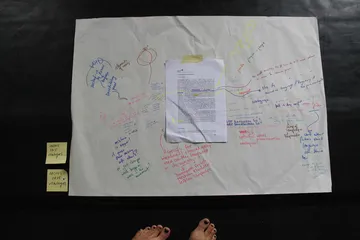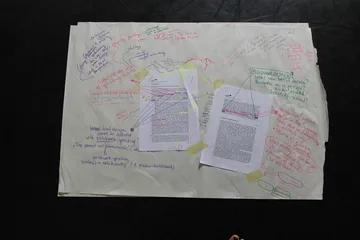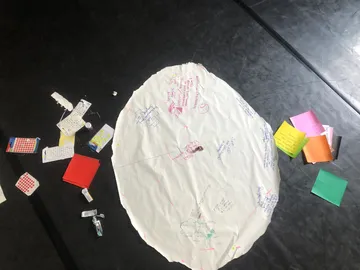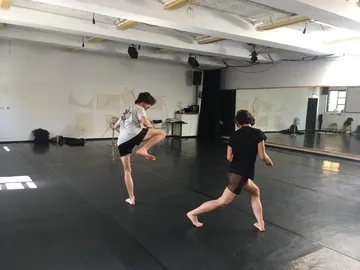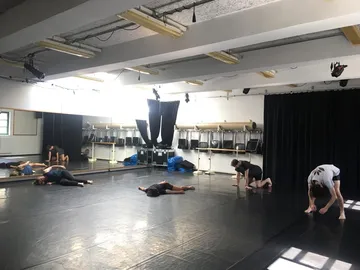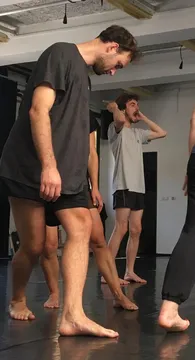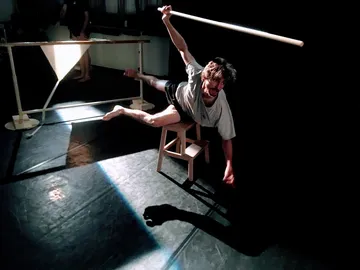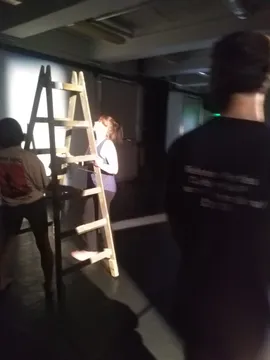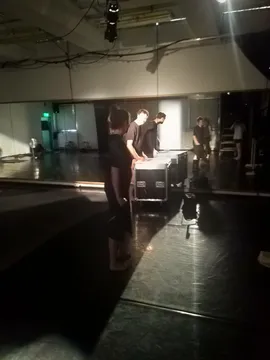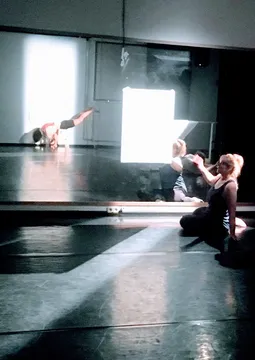Blurrylingualism – encounter in between languages
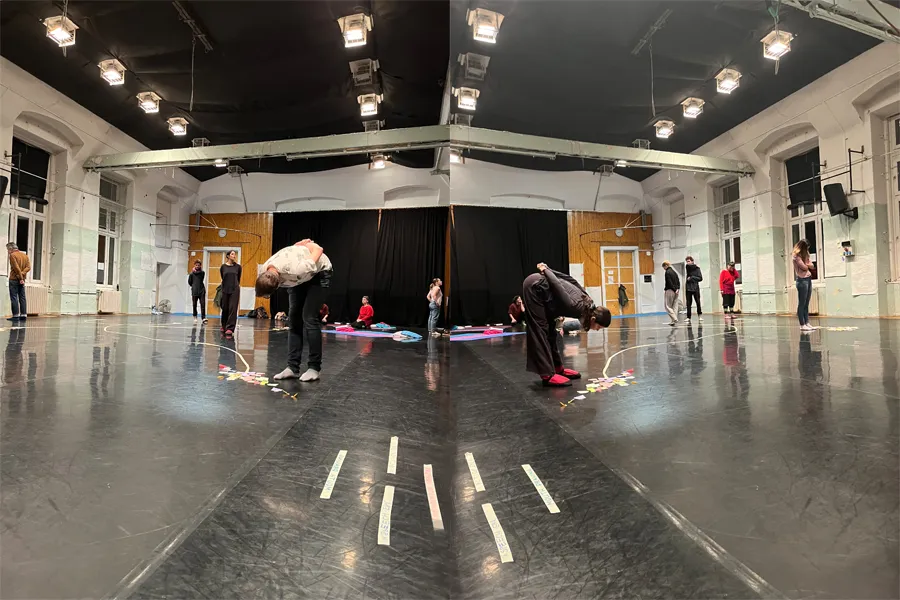
The project started in 2023 with the artistic research of performing artists Florent Golfier-Brechmann, Bartosz Ostrowski and Michaela Dašková in Műhely Alapítvány / Workshop Foundation Budapest with the support of Performing Artist Residency of Visegrad Fund.
The core focus was to explore linguistic concepts through choreographic practice. The artists investigated physical reaction to language incomprehension through: The Threshold Theory of R. Land, code-switching concept and experiences of multilinguality. The aim was to look for alternative embodied response to not-understanding and to deconstruct Phillipe Blanchent´s term glottophobia* – prejudice and discrimination through language.
This collaboration is the development of the long term interdisciplinary focus of Golfier-Brechmann and Ostrowski between dance and linguistics (Wrestling with Language 2019, Babel the resonance of language 2019, Babel laboratories 2020–2022) and Daškova artistic interest in analyzing the public speeches (This is not about me, 2021).
The collaboration in Workshop Foundation Budapest was conducted in an interdisciplinary group: the Polish curator Anna Majewska facilitated the process and opened an in-depth reflection on collectivity. The dancer-linguist Dr J. Pędisz supported and will continue to nourish the research with scientific content. The light designer Zuzanna Režná participated in the studio research to find a performative formulation of the ideas and concepts.
During their research the artists developed several practices based on juggling with the codes of dance and linguistics such as:
Etymology Tree – a graphic game with possible ancestors and descendants of a chosen term, that are based on the visual form, their vocalization and semantic or semiotic meaning.
Polyphonia – a verbal game based on collective and synchronized repetition of one word till some participant slowly transforms it to another slightly different word that is being collectively repeated. The result is the instant developpement of a collective poetry nourished from the all participant languages and associations.
DoSay – a playful score with the shifts between a physical movement (participant 1), descriptive translations of the movement (participant 2) and its reconstruction by some third participant who does not see the original movement. The subjects/focus points of the description are: the physicality of the movements, sensations they bring, relation to space, associations and poetic explanations of the before mentioned. All in all, it creates a peculiar somatic state of an embodied reflection on language and movement.
TongueTalk – based on materials developed in Poetic or Speculative etymology (possibly through Etymology Tree or Polyphonia), to take the form of a short performative lecture in which speech and movement perpetuate themselves.
During the research, artists developed movement scores working with paraverbal communication and proceeded with various scores of commentary reading as well as modality of the embodiment of foreign language phrases.
Timeline of the research with additional materials are available online.
Public sharing of research
Blurrylingualism – Open studio, 18th of February 2023, Grabo200 studio, BudapestBlurrylingualism – Open studio, 27th of July 2023, TRAFO studio, Budapest
 The residency was organized with support of Performing Artists Residency Visegrad Fund program and Culture Moves Europe Mobility Grant.
The residency was organized with support of Performing Artists Residency Visegrad Fund program and Culture Moves Europe Mobility Grant.
Project development in 2024
In 2024, the collective of artists aims to develop a toolkit publication of their research to summarize and pass over their knowledge to other art practitioners and to broader public that would want to experiment playfully with their plurilingualism.
The publication will be presented during a Toolkit launch that will be accompanied from a workshop format for the visitors to experience the choreographic tools that were developed. The whole event will be an invitation to “a linguistic greenhouse”, where new knowledge is being grown and diversity is being taken care of.
Creation team:
Authors and performers: Bartosz Ostrowski, Florent Golfier, Michaela Dašková
Light designer co-research: Zuzana Režná
Process facilitator: Anna Majewska
Linguistic consultant: dr hab. Joanna Pędzisz (UMCS Lublin)
Acknowledgements: Ágnes Kertész, Laura Golfier-Brechmann, Dorottya Mátravölgyi, Gergely Talló, Tímea Laza, Rhythms of Resistance Budapest, Anna Biczók, Viktor Szeri. Zuzanna Berendt, prof. Barbara Mertins, Markéta Perroud
Partners: Culture Moves Europe, Visegrad Fund, tYhle, University of Marie Curie Skłodowska in Lublin (UMCS), Krakowskie Centrum Choreograficzne (KCC)
